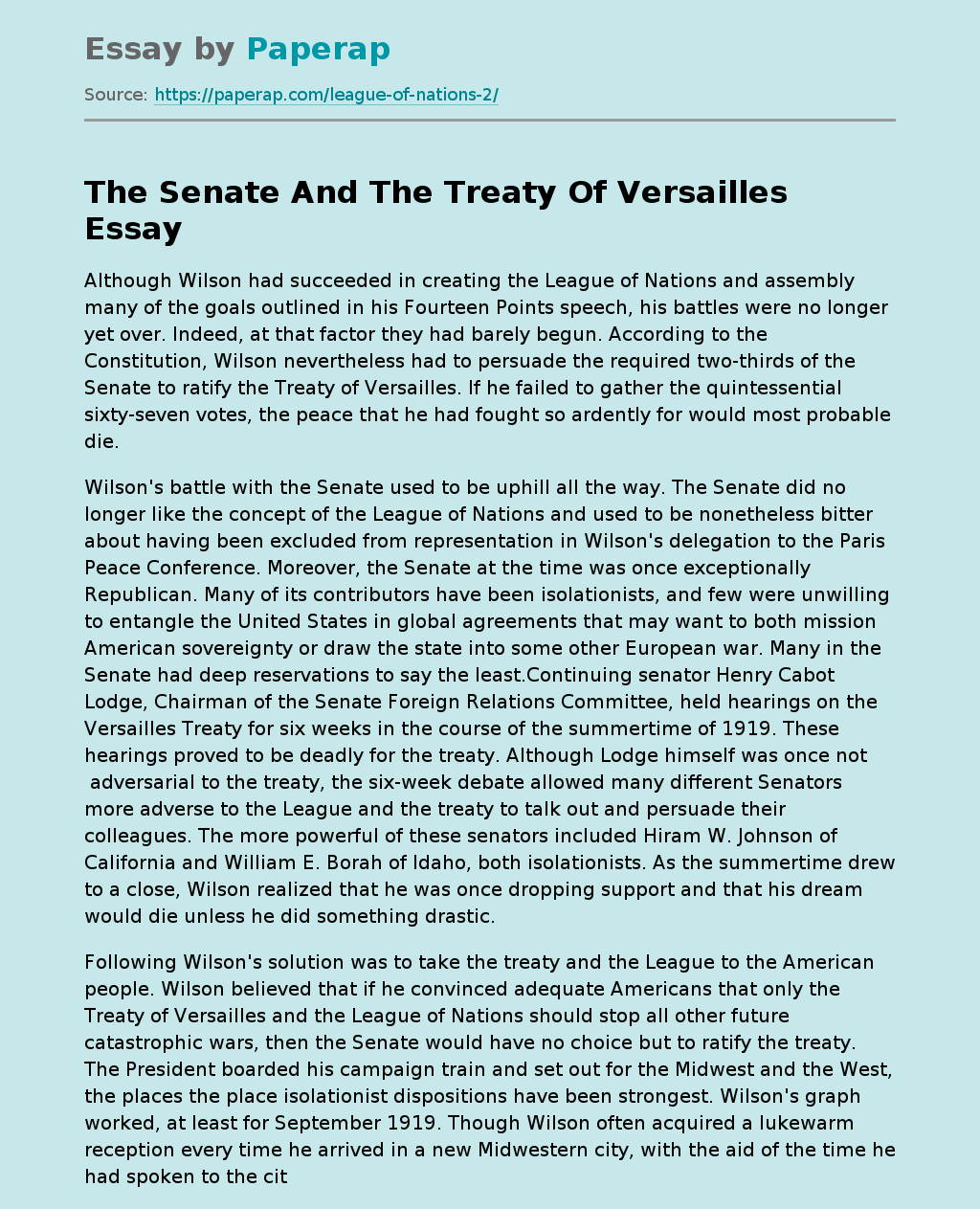The Senate And The Treaty Of Versailles
Although Wilson had succeeded in creating the League of Nations and assembly many of the goals outlined in his Fourteen Points speech, his battles were no longer yet over. Indeed, at that factor they had barely begun. According to the Constitution, Wilson nevertheless had to persuade the required two-thirds of the Senate to ratify the Treaty of Versailles. If he failed to gather the quintessential sixty-seven votes, the peace that he had fought so ardently for would most probable die.
Wilson’s battle with the Senate used to be uphill all the way.
The Senate did no longer like the concept of the League of Nations and used to be nonetheless bitter about having been excluded from representation in Wilson’s delegation to the Paris Peace Conference. Moreover, the Senate at the time was once exceptionally Republican. Many of its contributors have been isolationists, and few were unwilling to entangle the United States in global agreements that may want to both mission American sovereignty or draw the state into some other European war.
Many in the Senate had deep reservations to say the least.Continuing senator Henry Cabot Lodge, Chairman of the Senate Foreign Relations Committee, held hearings on the Versailles Treaty for six weeks in the course of the summertime of 1919. These hearings proved to be deadly for the treaty. Although Lodge himself was once not adversarial to the treaty, the six-week debate allowed many different Senators more adverse to the League and the treaty to talk out and persuade their colleagues.
The more powerful of these senators included Hiram W. Johnson of California and William E. Borah of Idaho, both isolationists. As the summertime drew to a close, Wilson realized that he was once dropping support and that his dream would die unless he did something drastic.
Following Wilson’s solution was to take the treaty and the League to the American people. Wilson believed that if he convinced adequate Americans that only the Treaty of Versailles and the League of Nations should stop all other future catastrophic wars, then the Senate would have no choice but to ratify the treaty. The President boarded his campaign train and set out for the Midwest and the West, the places the place isolationist dispositions have been strongest. Wilson’s graph worked, at least for September 1919. Though Wilson often acquired a lukewarm reception every time he arrived in a new Midwestern city, with the aid of the time he had spoken to the citizens, they nearly continually gave him roaring cheers.
Toward the give-up of the month, however, Wilson was once starting to tire. He had delivered nearly forty speeches in half of as many days over, 8,000 miles of America. He eventually collapsed in Pueblo, Colorado, on September 25, 1919. A week later, returned in Washington, D.C., Wilson suffered a stroke. He was paralyzed on the left facet of his entire body and remained half-paralyzed for the relaxation of his life.
Finally, the rest of Wilson’s time in office was uneventful. His wife Edith stayed by his bedside and relayed his orders, but the President could not seriously work on anything else. Despite the treaty’s failure in the Senate, Wilson believed until the day he died that he had been in the right to fight for it.
The Senate And The Treaty Of Versailles. (2021, Dec 05). Retrieved from https://paperap.com/league-of-nations-2/

